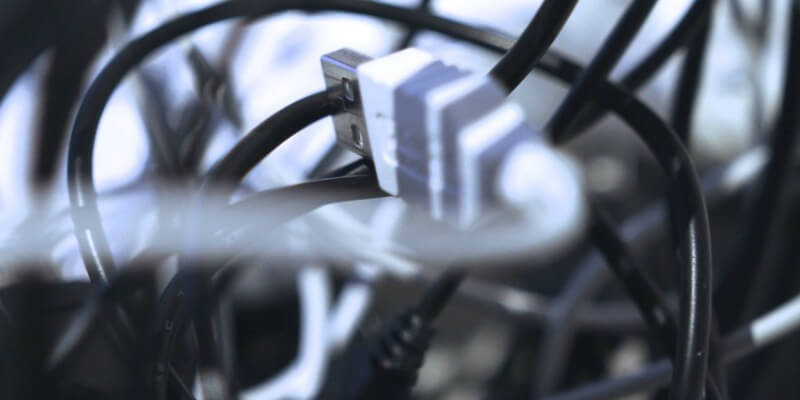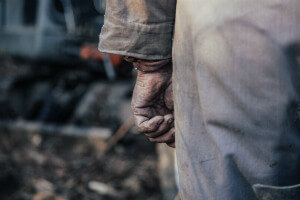Do you feel connected, or tethered?
While you’re mulling that over, here’s another one: Can you handle downtime? The art of loafing — made famous by such characters as Huckleberry Finn; the morbidly obese passengers of the spaceship, Axiom, in the Pixar movie WALL-E; and cats everywhere – has its good points. There’s something to be said for taking some time to daydream.
Tell that to the experts who want to help us stay on task and be more productive. “We’ve come to consider focus and being on as ‘good,’ and idleness – especially if it goes on for too long – as ‘bad’ and unproductive. We feel guilty if we spend too much time doing nothing,” says Stanford psychologist Emma Seppälä, Science Director of the Center for Compassion and Altruism Research and Education. She has written a book, The Happiness Track: How to Apply the Science of Happiness to Accelerate Your Success.
Goofing off in moderation can be very helpful, especially when you’re trying to think creatively. In fact, Seppälä says, truly successful people “are successful because they make time to not concentrate.” By just leaving the desk and taking a walk, for instance. “As a consequence, they think inventively and are profoundly creative. They develop innovative solutions to problems and connect dots in brilliant ways.”
Here are three simple ways you can “unfocus” your hard-working brain – and free it up for tackling problems in new ways:
 Do something mindless. Don’t just sit there staring at your computer or focusing on one monumental task. “To get a new perspective on something, we actually need to disengage from it,” Seppälä says. Don’t worry – your brain keeps right on working on a problem, even when you aren’t actively thinking about it. Take a shower, or go for a walk around the block, or empty the dishwasher. You and your brain will feel refreshed.
Do something mindless. Don’t just sit there staring at your computer or focusing on one monumental task. “To get a new perspective on something, we actually need to disengage from it,” Seppälä says. Don’t worry – your brain keeps right on working on a problem, even when you aren’t actively thinking about it. Take a shower, or go for a walk around the block, or empty the dishwasher. You and your brain will feel refreshed.
Do nothing at all. Silence is powerful, says Seppälä. Meditation or even just taking a “silence break” helps you think outside the box. This is not that easy for many of us: “When your mind wanders, thoughts and feelings can emerge that are not necessarily pleasant. Being alone or being un-busy or quiet can open the door to troublesome thoughts or even anxiety.” But hang in there. If you keep at it, you can sit through these thoughts, “or walk through them, if your silent practice is a hike or a walk,” and “they will eventually pass, leaving room for free-flowing thoughts and daydreams.” Doing nothing is its own form of exercise, and you get better with practice.
Play. “We are the only adult mammals who do not make time for play, outside of highly structured settings like a Sunday neighborhood soccer game or playtime with a child,” says Seppälä. Play stimulates positive emotion, and this, in turn, leads to “greater insight and better problem solving.” Feeling good helps you see the bigger picture, instead of feeling trapped by the details. If you’ve gotten rusty at playing, don’t worry – this is a skill that can be relearned.
And now, back to feeling constantly connected to the world: this is not as good as thing as the smartphone makers would like you to believe. Just ask Jenna Woginrich, who gave up her smartphone 18 months ago. She wrote about it in the UK newspaper, The Guardian.
She didn’t just get a low-tech flip phone to “simplify.” No, she jettisoned having a cell phone – any cell phone — altogether.
She doesn’t miss it. She still has a computer and a landline. “There are a dozen ways to contact me between e-mail and social media,” she says. “My phone has become ‘the phone.’ It’s no longer my personal assistant; it has reverted back to being a piece of furniture – like ‘the fridge’ or ‘the couch,’ two other items you also wouldn’t carry around on your butt. I didn’t get rid of it for some hipster-inspired Luddite ideal… I cut myself off because my life is better without a cell phone. I’m less distracted and less accessible, two things I didn’t realize were far more important than instantly knowing how many movies Kevin Kline’s been in at a moment’s notice.”
 Even though her friends think her decision was nuts, she feels “rich,” she says, because the addiction was getting to her. “I hated that anyone, for any reason, could interrupt my life.” Worse, she adds, “I was constantly checking e-mails and social media, or playing games. When I found out I could download audiobooks, the earbuds never left my lobes. I was a hard user. I loved every second of it. I even slept with my phone by my side. It was what I fell asleep watching, and it was the alarm that woke me up. It was never turned off… It got so bad that I grew uncomfortable with any 30-second span of hands-free idleness. I felt obligated to reply to every Facebook comment, text, tweet and game request.”
Even though her friends think her decision was nuts, she feels “rich,” she says, because the addiction was getting to her. “I hated that anyone, for any reason, could interrupt my life.” Worse, she adds, “I was constantly checking e-mails and social media, or playing games. When I found out I could download audiobooks, the earbuds never left my lobes. I was a hard user. I loved every second of it. I even slept with my phone by my side. It was what I fell asleep watching, and it was the alarm that woke me up. It was never turned off… It got so bad that I grew uncomfortable with any 30-second span of hands-free idleness. I felt obligated to reply to every Facebook comment, text, tweet and game request.”
No mas. She got clean. “I look people in the eye. I eat food instead of photographing it and am not driving half a ton of metal into oncoming traffic while looking down at a tiny screen… And while I might be missing out on being able to call 911 at any moment, it’s worth the sacrifice to me.”
Woginrich says she’s glad to be back in the world again. “It beats waiting for the notification alert telling me that I exist.”
You probably don’t want to give up your smartphone. But think about putting more distance between yourself and it. Loosen the tether, and see what happens.
©Janet Farrar Worthington

 I may not know you personally, but I know that, because you’re a man, chances are good that you do two things. One, you most likely respond to health
I may not know you personally, but I know that, because you’re a man, chances are good that you do two things. One, you most likely respond to health